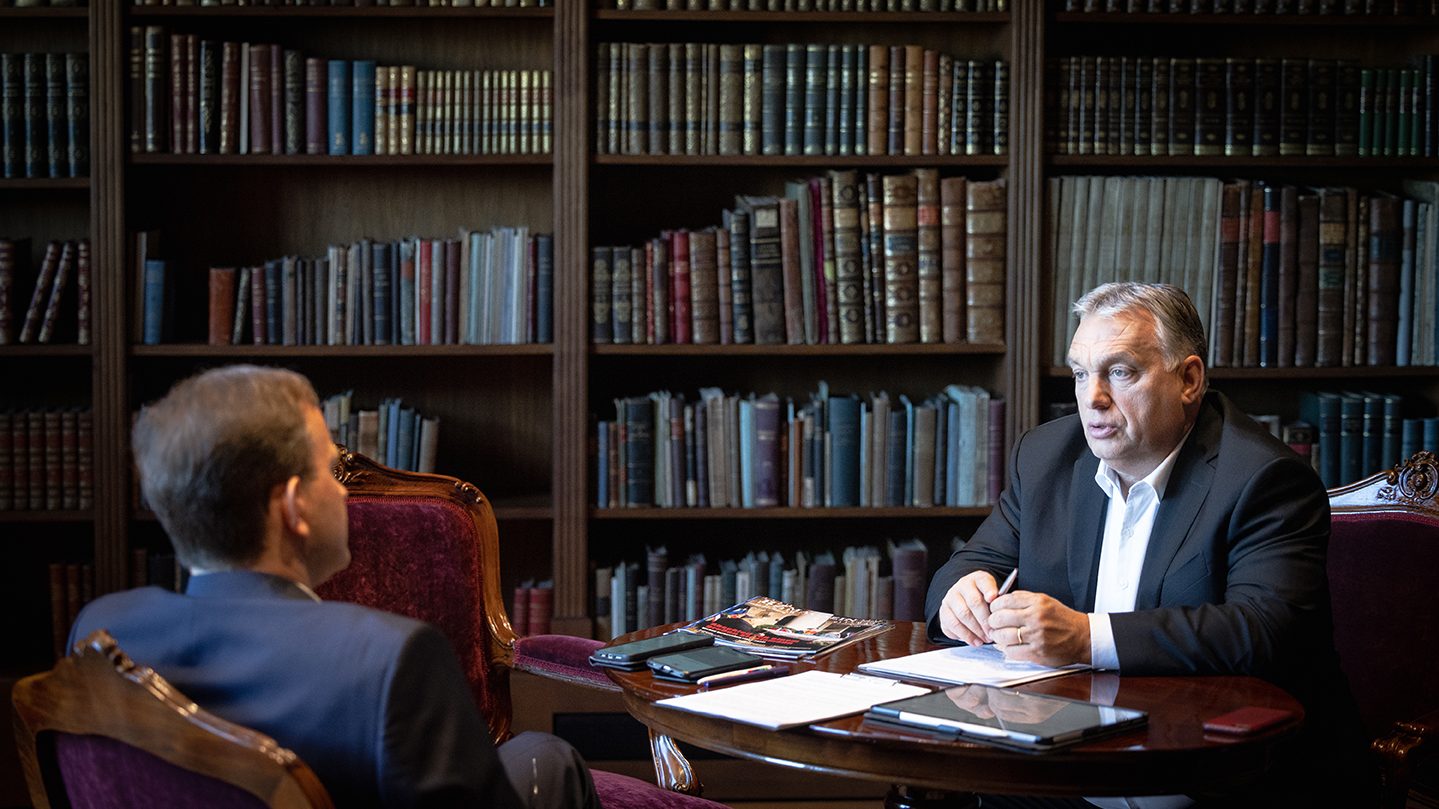
Regarding Hungarian-German governmental relations, the Prime Minister said the German federal government’s programme “is a world apart” from the Hungarian government’s programme, while the biggest force of the coalition comprising the German government, the Social Democratic Party of Germany (SPD) is “the most anti-Hungarian party in Europe”.
Therefore, “it will take serious efforts to bridge the differences that exist between the two countries in ever more areas,” Mr Orbán highlighted.
In the context of the opposition party Alternative for Germany (AfD) positioned right of the largest opposition force, the centre-right CDU/CSU party alliance, he said “interstate relations are more important than relations between parties,” and so “we are compelled to sacrifice relations with AfD at the altar of the best possible intergovernmental relations” as “it is a specificity of German democracy that if we were to take steps towards AfD, that would have an impact on intergovernmental relations.”
He added that “from a Hungarian point of view, the CDU is already a left-wing party,” and the same applies to the Bavarian CSU as well.
In connection with Hungarian-German relations, he further highlighted that “Germany has become a multicultural society,” and “Hungarian society is much more pluralistic, freer and more peaceful than German society”.
He said in Germany “a liberal hegemony dominates,” meaning that “there is room only for a single narrative in the public domain,” and “anyone who departs from that no longer exists for the members of that public.” In Hungary, however, “public discourse has a pluralistic structure.”
He underlined that “people in Germany, but in general also in Western Europe resort to double standards, something that we Hungarians cannot tolerate.” At the same time, there is no point in increasing the “political tension” that has developed with Germany because “cooperation is much more important.”
He further said “in the coming ten to twenty years, ever more Western Europeans will move to Hungary because Hungary is a safe Christian country that is proud of its traditions.” He added that “whenever in European history immigrants arrived from the West, it was always beneficial for the receiving country,” and so Hungary, too, welcomes refugees, but only if they come from the West.
Regarding the war in Ukraine, he argued that “at present, Europe is supporting Ukraine in such a way that the continent is being forced into a spiral of escalation,” and “unless we stop this process, we ourselves will find ourselves becoming involved in the war, even though so far we have tried to avoid this.”
He said “what the EU is doing now is utterly destroying its rational and geopolitical interests,” while the decisions on the sanctions “were conceived solely on a moral and emotional basis.” He indicated that also during his visit to Germany, he sought “a rational core in Germany’s energy and sanctions policies” in vain.
In answer to questions about what Europe should do in the present situation, he said “wars can be provoked by weak statesmen, but it takes strong ones to initiate a peace process and to bring wars to a conclusion.” Therefore, it is to be hoped that, “sooner or later, the German government will grow into the role that Germany should play on account of its weight in Europe.” We can also hope that former US President Donald Trump and former Israeli Prime Minister Benjamin Netanyahu will return likewise.
He added that the war “will not end with Ukrainian-Russian talks, that will require American-Russian talks; however, until the two parties clearly have an interest in peace, the war will continue”.
He also said the government “is making a conscious effort not to bring up” the “attacks” on the Hungarian minority in Ukraine and their rights, but this “does not mean that we are suffering from amnesia.” After the war, it will be necessary to conclude a comprehensive agreement on Hungarian-Ukrainian cooperation that also guarantees the rights of the Hungarian minority.
Regarding the EU’s future international role, he argued that in security and defence policy “we need more EU,” the community “should do much more on the military front in the interest of its own sovereignty.” The Member States should at the same time allocate more money for arms developments and defence, and so the EU “could even fill the geopolitical gap that would develop after the withdrawal of the United States.”
In the context of EU grants, he highlighted that the government’s political opponents are using EU institutions “as a weapon,” “they’re penalising us, and are evidently blackmailing us with the EU funds,” for which “there is no legal basis, the whole thing is blackmail, pure and simple.”
He said the government does not want to engage in disputes, they want to cooperate, and so “we don’t have a problem” with the implementation of the 17 points requested by the European Commission. “We will comply with every request. But I bet you that immediately after these, there will be an 18th, a 19th, and so on,” Mr Orbán said, adding that “my starting point is that after these ever further requests will keep coming.”
The Polish, too, “complied with everything,” but “further demands were tabled,” the Prime Minister explained, adding that “it is clear that it’s about forcing a change of government in Poland,” and “eventually, this could be the goal in the case of Hungary as well.”
He highlighted that “I presume, at the end of the year, the funds we’re entitled to will be released” as “we fully satisfy all technical requirements,” and so “soon, they will have no reason whatsoever to deny us the funds for very much longer.”
“I expect that before the end of the year, we’ll be able to sign the agreements with the EU. I cannot tell you, however, whether any money will actually arrive.” At the same time, “Hungary cannot be cornered financially,” Mr Orbán said.


